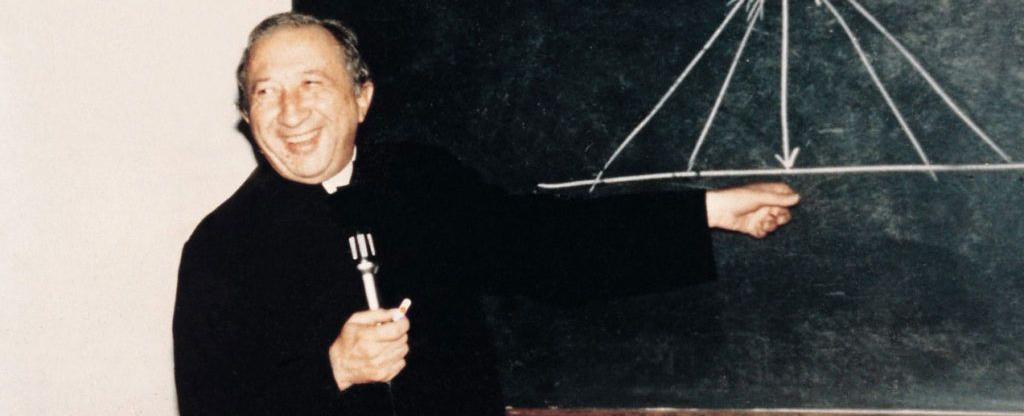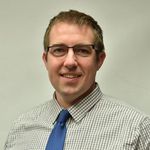Education as Total Reality: Luigi Giussani and Newman on Education

"The place where the educational process unfolds must be a place where all of reality is presented" (Giussani, The Risk of Education, 133).
This statement from Luigi Giussani stands as an apt summation of John Henry Newman's argument that a university is a place that teaches universal knowledge. Both men, who spent much of their lives in education, believed that a true education must engage the entirety of the person, preparing them not only to think well, but also to live well. To make this possible, Newman and Giussani in their time and in their own ways, fought to preserve a space in education for questions about God, creation, and the human person.
Giussani defined education as, "introduction to total reality" (Giussani, The Risk of Education, 50). The concept of "totality" looms large in Giussani's thought. For Giussani, the human person is essentially that thing in nature which seeks an all-encompassing explanation for its own existence. The "religious sense" is exactly this instinct, this natural desire, to ask questions of ultimate meaning. Education ought to cultivate and provide the opportunity for the "religious sense" to come alive. In doing so, the student will be confronted with questions that the natural sciences, social sciences, history, or economics cannot fully address. Therefore, these subjects, while important factors in an education, cannot exclude the place of philosophy, literature, or theology. For Giussani, the student must face, with his or her own "I," the religious problem in history, and the Christian proposal that the problem has a resolution in a person, Jesus of Nazareth.
Likewise, Newman sought to preserve and protect the space for religious inquiry within an education. Giussani's argument about "total reality" has a corollary in Newman's argument about the university as a place that teaches all subjects. In discourses 2-4 of the Idea of a University, Newman defended the place of theology within a university education. To make his case, he began by arguing that a university is a place that "professes to teach universal knowledge" (Idea of a University, 20). Ultimately, it is through an education in universal knowledge that "true enlargement of mind" takes place. An education limited, for instance, by usefulness (discourse 7) or aesthetic taste (discourse 8), will develop a mind narrowed in scope and prejudiced in character. The true education, the education that Newman proposed throughout his life, results in "the power of viewing many things at once as one whole, of referring them severally to their true place in the universal system, of understanding their respective values, and determining their mutual dependence" (Idea of a University, 137).
Having made his case for the teaching of universal knowledge, Newman then went on to defend the place of theology within a university education. One of the central ideas to Newman's argument for theology concerned an appeal to what he called the "circle of knowledge" (Idea of a University, 67). Drawing on the image of a circle to represent the unity of all knowledge, Newman argued that each academic discipline was responsible for maintaining its own portion of the circle. Each discipline has its distinct objects and distinct methods by which it investigates those objects. Put another way, each discipline asks specific questions that are within its purview. A full education requires a familiarity with the entire circle. The "enlarged mind" can determine which questions fall under which disciplines. Thus, argued Newman, to exclude theology from a university education would undermine the educational endeavor from the start. The great danger of excluding theology was not simply that theological questions would be ignored. What Newman feared was that other disciplines would step into the space of theology and attempt to answer questions that were outside of their portion of the "circle of knowledge." The physicist, the biologist, or even the economist, would be tempted, perhaps subconsciously, to make totalizing claims about the origins of the universe, the existence of the soul, or the meaning of freedom and happiness. These claims, without theology, would go unanswered if theology's place within the circle was not defended and maintained. Moreover, the student would be deprived of the ability to address such questions from the totalizing perspective of theology.
For Newman and Giussani, an education that was worthy of the name had to be open to "total reality" by presenting and living an engagement with the entire "circle of knowledge." Only in such an education would the student have the possibility to be truly free to live in accord with reality. Ultimately, both men desired a liberal education in its truest sense.
Share
Matthew Muller
Assistant Professor, Gregorian Institute at Benedictine College
Matthew M. Muller is an assistant professor of theology and director for programs for the Gregorian Institute at Benedictine College in Atchison, Kansas. He completed his PhD in historical theology from Saint Louis University in May 2017. His dissertation was on Newman's understanding of biblical inspiration in his Anglican years. He was first introduced to Newman while pursuing a Masters in Catholic Studies from the University of St Thomas, in Minnesota. He wrote his masters thesis under the direction of the late Don Briel on the role of imagination in Newman's writings on education. After graduating from Benedictine in 2006, he served for three years as a missionary with FOCUS (Fellowship of Catholic University Students) at the University of Illinois. He and his wife, Jordan, have three children: Anthony, Owen, and Juliana.
Topics
Newsletter
QUICK LINKS

